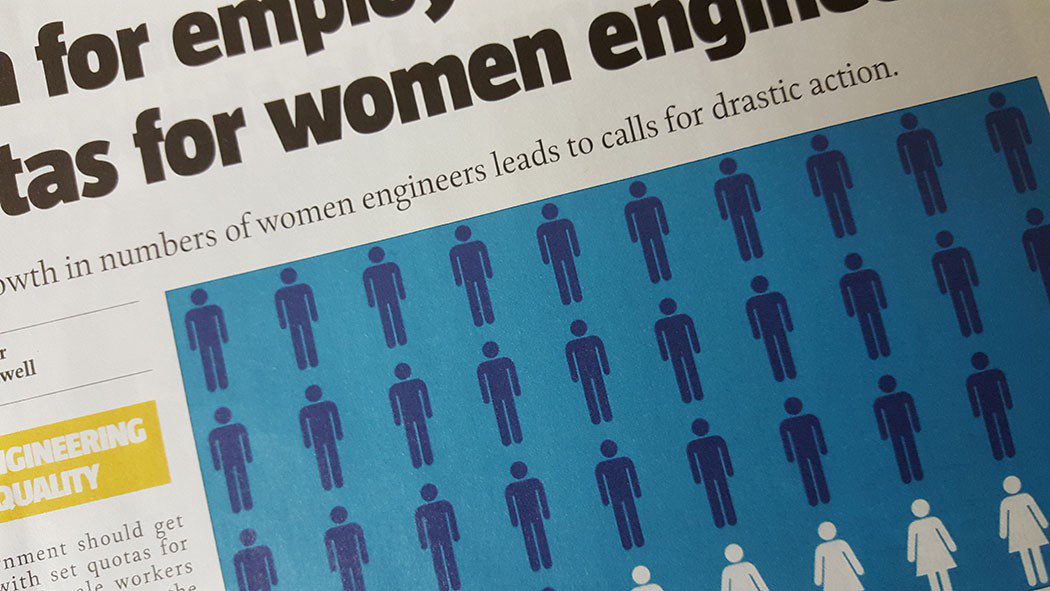
Female Engineer ‘Quotas’ Potentially Insulting To Women
6/11/2015 - posted in HBPW News, Recruitment, The Team
Engineering Trade Media Reacts
An engineering chief’s call for recruitment ‘quotas’ to redress the imbalance of female engineers within the UK sector, is both impractical and, potentially, insulting to the opposite sex says HBPW Partner, Jon Livesey.
He was reacting to comments by Naomi Climer, president of the Institution of Engineering Technology (IET), who has attracted huge reaction since commenting that ‘the time is right’ for setting numbers of women employed by engineering firms.
But, according to Jon Livesey, the issue is far more complicated with far-reaching implications.“If you are going to introduce quotas into the engineering sector then, surely, the teaching profession would have to come under scrutiny or any other sector for that matter? However, as an example, female primary school teachers massively outnumber male professionals.
“On a wider point, if a woman goes for an interview at an engineering firm where she knows a quota system exists, how will she ever know whether or not she is the best person for the job or simply there to fulfil a potential quota need? That is demeaning.
“There is a major danger that women engineers become totally devalued by a quota system because they will never know ‘why’ they were employed.”
Currently only one in 10 engineers is female and Climer told New Civil Engineer Magazine: “I’m somewhat reluctantly saying that quotas do need to be considered.
“But when it comes to how these might work, I think that needs some more thought – with government and industry working together to create a framework that is both practical and achievable.” But Jon Livesey says the problem is being addressed at the wrong point in time.

Jon Livesey
“The problem stems from lack of awareness in the classroom. When children are at school they invariably learn about ‘jobs and roles’ but so few, including our educators, know what an engineer does and the profession is often written off as ‘digging holes in the ground.’
“Consequently, professional aspects of the job are ignored, awareness is low and young girls are not inspired to become an engineers, even though they may be strong at maths and science. The issue, like so many other things, needs to be addressed in the classroom.”
